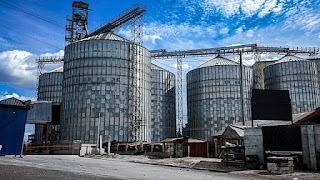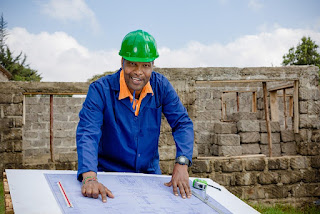7 Advantages Of A Design-Build Contract in Canada
1. Understanding
the Essence of a Design-Build Contract
In the intricate world of construction, the design-build contract stands as a comprehensive paradigm shift. Unlike the traditional model, which segregates design and construction, this approach unifies them from the project's genesis. A harmonious collaboration between architects, designers, and builders characterizes construction companies in London Ontario. This synergy ensures that the project's vision remains cohesive throughout, minimizing the risk of miscommunication or conflicting objectives. The design-build contract, by its very nature, encapsulates a holistic understanding of a project, laying the foundation for a streamlined and integrated construction process.
Choosing a design-build contract means embracing a holistic vision, where creativity, functionality, and construction expertise coalesce seamlessly to bring a concept to fruition. It's more than a contract; it's a commitment to a unified and efficient construction journey.
2. Streamlined Communication for Project Success
Communication is the lifeline of any successful construction project, and the design-build contract excels in fostering a culture of transparent and efficient communication. By amalgamating the design and construction teams early in the project, a continuous exchange of information becomes the norm. This streamlined communication is not merely about conveying instructions; it's about creating an environment where ideas flow freely. A design-build contract ensures that decisions are made collaboratively and promptly, eliminating the bottleneck often associated with traditional models. The result is a construction process that moves forward with precision and agility.
In the intricate dance of construction, the design-build approach orchestrates a symphony of communication, ensuring that every note resonates with the project's objectives. It's more than just building structures; it's about building a cohesive team that communicates effortlessly.
3. Enhanced Efficiency Through Single-Point Accountability
Efficiency in construction is synonymous with accountability, and a design-build contract places this accountability squarely on the shoulders of the design-build team. With a single point of contact for both design and construction aspects, decision-making becomes swift and decisive. This single-point accountability not only expedites the decision-making process but also fosters a sense of responsibility within the team. Each member understands their role in the larger picture, contributing to a well-oiled machine that propels the project forward with purpose and efficiency.
In the realm of construction, where timelines are crucial, the design-build approach emerges as a beacon of efficiency. It's a commitment to accountability, where every action is a step towards the seamless realization of the project's goals.
4. Cost Savings and Time Efficiency
In the ever-evolving landscape of construction economics, the design-build contract emerges as a beacon of cost-effectiveness and time efficiency. By consolidating the design and construction phases, potential conflicts and delays are mitigated, resulting in a more efficient utilization of resources. This integrated approach minimizes unforeseen expenses and ensures that the project stays within budget, offering a financial advantage to both the client and the construction team. Furthermore, the collaborative nature of the design-build model allows for a more accurate estimation of costs from the project's outset. This early alignment of cost projections fosters transparency and enables clients to make informed decisions, eliminating the uncertainties often associated with traditional construction contracts. The result is a financial landscape characterized by predictability and fiscal responsibility.
Choosing a design-build contract isn't just a strategic construction decision; it's a financial investment that pays dividends in the form of cost savings and timely project completion. It's a paradigm that values not only the project's end result but also the efficient journey to its completion.
5. Tailored Solutions with Custom Home Builders in Ontario, Canada
For those seeking a personalized touch in their construction endeavors, collaborating with custom home builders in Ontario Canada, under a design-build contract is an astute choice. This approach allows for a more intimate involvement in the design process, ensuring that the final result aligns seamlessly with the client's unique vision and preferences.
Custom home builders thrive on the intricacies of individuality, and the design-build contract provides them with the canvas to craft tailored solutions. This personalized approach extends beyond aesthetics, encompassing functional preferences, energy efficiency requirements, and lifestyle considerations. The result is a home that not only reflects the client's personality but also caters to their specific needs and desires. In the realm of custom home construction, the design-build model is a testament to the marriage of creativity and functionality. It's more than just building homes; it's about crafting living spaces that resonate with the distinctive essence of each client.
6. Sustainability as a Core Focus
In an era where environmental consciousness is paramount, the design-build contract stands out as a champion of sustainability in construction. This model encourages a holistic approach to sustainability by integrating eco-friendly practices and materials seamlessly into the design and construction processes.
Sustainability is not merely an added feature but a core focus embedded in every decision and action. Design-build teams collaborate to explore innovative solutions that minimize the project's ecological footprint, from energy-efficient designs to the incorporation of sustainable building materials. The result is a construction project that not only meets current environmental standards but anticipates and adapts to future sustainability requirements. Choosing a design-build contract for sustainable construction is a commitment to a greener and more environmentally conscious future. It's a proactive stance that aligns construction practices with the imperative of preserving and enhancing the planet's well-being.
7. Flexibility in Project Modifications
Construction projects are dynamic, and the need for modifications is almost inevitable. The design-build contract excels in providing a framework that embraces change with flexibility and adaptability. Unlike traditional models where modifications can lead to bureaucratic hurdles and delays, the integrated nature of design-build allows for swift and efficient implementation of changes. Flexibility in project modifications doesn't just mean responding to unforeseen challenges; it also encompasses the ability to incorporate evolving needs and standards seamlessly. The collaborative environment of the design-build model fosters a culture where modifications are viewed not as disruptions but as opportunities to enhance the project's overall success.
In the dance of construction, where adaptability is key, the design-build approach shines as a model that navigates changes with finesse. It's not just a contract; it's a commitment to a construction journey that embraces the fluidity of the building process.





Comments
Post a Comment